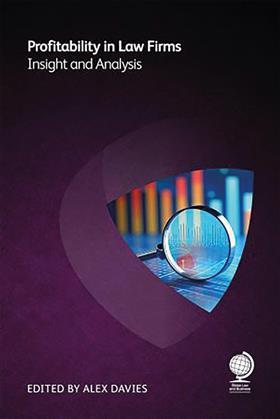Making money is about more than arithmetic
Profitability in Law Firms – Insight and Analysis
Edited by Alex Davies
£149, Globe Law and Business
★★★✩✩
This book says there are two types of client: those ‘in pain’ and those who want ‘a gain’. The ones ‘in pain’ are those in trouble with authorities such as the police, or have personal concerns such as divorce or debt. The clients looking for gain want to buy a new house or business. This means that clients are only concerned with the end point. No one reads a will, contract or transfer form for entertainment. The client is not really interested in the bit we do to achieve the gain or ease the pain.
Profitability ought to be that simple too. Profit equals costs less overheads; just increase one and reduce the other. That is all a solicitor has to do. Easier said than done. Our costs are often fixed, clients want to pay less not more, and overheads are not in our control.
This book is written from a global perspective with chapters from various contributors. One contributor is described as a ‘profit coach’. Successful firms have clear plans and policies which are adopted throughout the firm, and are frequently reviewed and measured. They also have comprehensive policies on feedback and expectations from the client which are used throughout the life of the case. They ask the client what their service expectations are and, most importantly, what does success look like? On the high street, we are more used to telling the client at the start what we will do and how, and then sending a questionnaire at the end to ask ‘how was it for you?’.

Staff at successful firms are trained and given clear guidance on how and what to charge. These firms have clear policies on billing, money on account, and how to deal with suppliers and therefore overheads. The book also makes the good point that the profession should not always charge on the basis of the number of hours spent on the case, but move to fixed fees.
Profitability is not just arithmetic – it is also about how people work and what clients want. Profitability means winning more enquiries, doing a case efficiently – and getting paid.
This book also has a very good section on mental health and stress. It describes the pressures on lawyers and how we are all vulnerable. There is an interesting section on the Mindful Business Charter, which was set up in 2017 following a discussion between in-house lawyers at Barclays Bank and two of their panel law firms. It is now an international movement of 130 organisations.
I like the line in this book about moving from being ‘overwhelmed and overworked’ to ‘organised’ and then to being a business ‘owner’.
David Pickup is a partner at Pickup & Scott Solicitors, Aylesbury































No comments yet